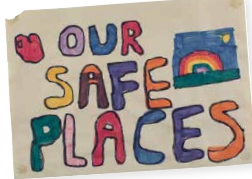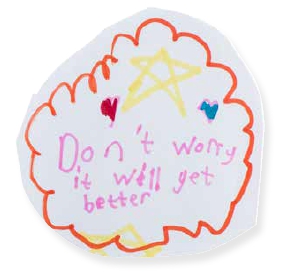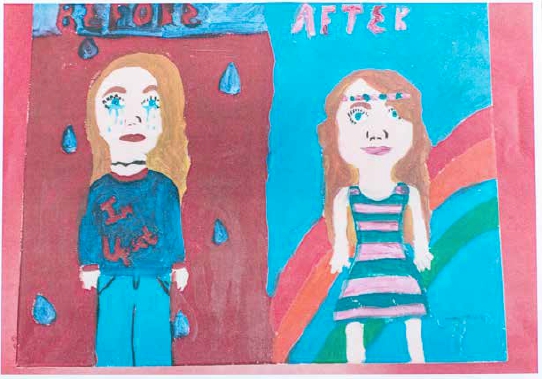Every day at work is different. When I arrive at refuge it tends to be a bit quieter, as the older children have just gone to school. I start the day by getting a handover from the night worker and catch up on any new information.
The playroom opens at 10am, where children participate in interactive play and have the opportunity to explore their environment in safe surroundings. The playroom is essential for children’s social interaction, language development and a sense of safety, as we put consistent boundaries in place. This is really important as the children thrive when they feel safe, valued and listened to. I also care for children while their mum goes to court or has an appointment, so it can be quite busy depending on what’s going on that morning.
At 1pm the playroom closes for an hour for lunch. I sometimes record what the children are eating for lunch in a food diary, in case I need to discuss other healthy eating options with mum later on. I also work closely with mums who need support and guidance with their parenting – this helps them build more positive relationships with their children and builds stronger attachments.

Our afternoon session starts at 2pm when children start to come back from school. I help them with their homework, and I usually carry out a 1-to-1 support session with one of the children. We might work through our Helping Hands programme, or do specific work around topics like domestic abuse, grief and loss or anger, depending on that child’s individual needs. Sometimes, for a treat, myself and a colleague will take the child out to get some ice-cream or go for dinner. During school holidays, we bring the children out on trips to the zoo, farm, cinema or parks. The playroom closes at 5pm and I make sure the place is cleaned and prepare activities for the following day.
When new children arrive to refuge we give them a warm welcome. They get a welcome pack that include pyjamas, a toy, books and other things which the child might like or need. I help mum to register the children with the local dentist and doctors, and ring around local schools so that the child can get back to school as quickly as possible. This means that the transition is as smooth as possible and disruption is kept to a minimum.

When I’m not working with children directly, I could be doing any number of things. I might meet with social workers or health visitors, or attend Looked After Children (LAC) reviews or case conferences. I’m there to both support the mother and to pass on information regarding the children’s progress, and to discuss how to best support the woman and her children. We also have a team meeting once a week, where I will update the rest of the team on the progress of the children, and any issues that have come up.
I love my job as a child worker because no two days are the same. I love to see how far each child comes from their arrival in refuge to the day they leave to start their new life.
Our See, Hear, Act conference takes place on 7th~8th February. To get tickets, go to our Eventbrite page or email seehearact@womensaidni.org to request an invoice or find out about group discounts and bursaries available.
